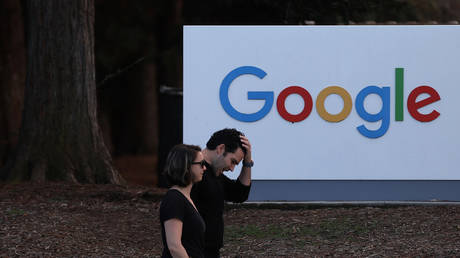
US authorities are seeking to strengthen competition in the online search industry
American tech giant Google broke the law by establishing a monopoly on online searches, a federal judge ruled on Monday.
The decision is seen as a major victory for US antitrust authorities, who have filed several lawsuits against big tech firms in a bid to strengthen competition in the industry, Reuters noted.
The case, initiated by the US Department of Justice in 2020, argued that Google has maintained its dominance of the search market by creating barriers to entry for other providers.
”After having carefully considered and weighed the witness testimony and evidence, the court reaches the following conclusion: Google is a monopolist, and it has acted as one to maintain its monopoly,” states the ruling issued by US District Court for the District of Columbia.
Google “enjoys an 89.2% share of the market for general search services, which increases to 94.9% on mobile devices,” the ruling reads.
Google has paid billions of dollars to device manufacturers to ensure its position as the default search engine on smartphones and browsers, Judge Amit Mehta said.
The Department of Justice has hailed the decision as “an historic win for the American people,” noting that “no company – no matter how large or influential – is above the law.”
The ruling “recognizes that Google offers the best search engine,” Kent Walker, president of global affairs at Google’s parent company Alphabet, said in a statement on X (formerly Twitter). The company plans to appeal, Walker added.
It is unclear what penalties Alphabet will face. According to Reuters, a second trial may be held to determine potential fixes, possibly including a breakup of the tech giant.
The company faces a separate lawsuit over its advertising technology, scheduled to go to trial in September.
READ MORE: WhatsApp is spyware – Musk
Google has also been fined billions of euros in monopoly cases in the EU.
Other Big Tech companies, including Facebook owner Meta Platforms, Amazon and Apple, have also been sued by federal antitrust regulators for allegedly operating unlawful monopolies.




